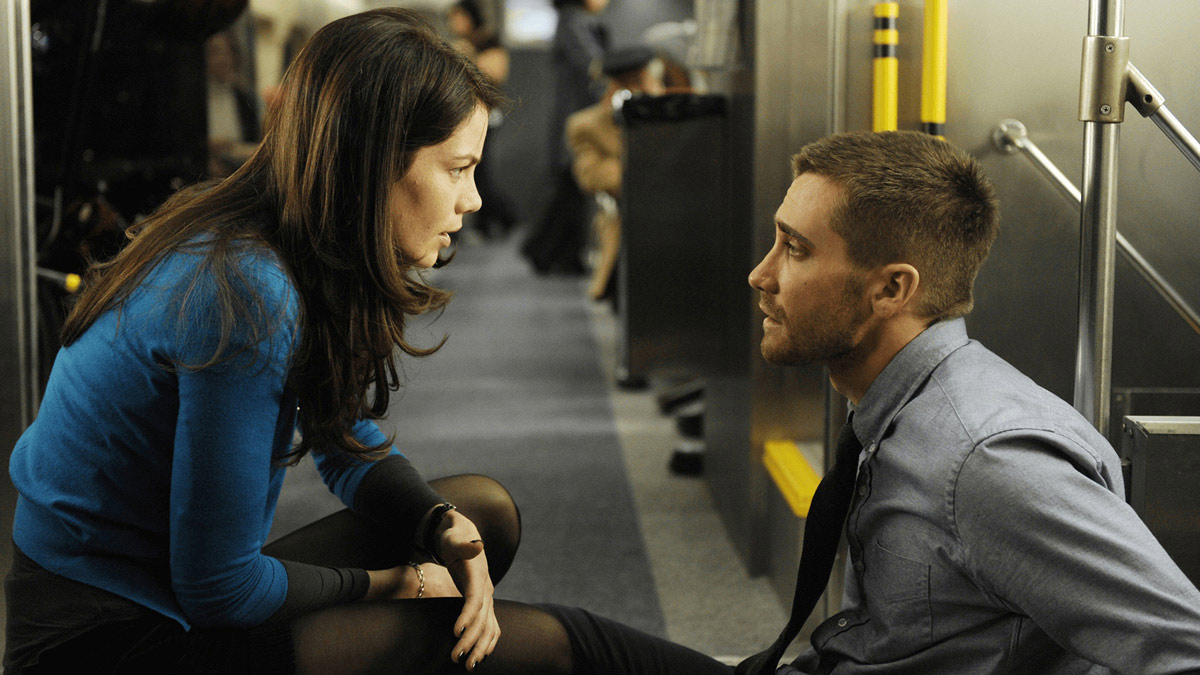
(c) Photofest / Getty Images
"Source Code" Duncan Jones's artistry emerges from the shocking loop world *Note! Contains spoilers.
2019.02.13
*This article touches on the ending of the story, so if you haven't seen it yet, we recommend that you enjoy it after watching the movie.
“Source Code” synopsis
A top-secret government mission begins to solve the Chicago train bombing that killed all passengers. It repeatedly enters the consciousness of the victim <8 minutes before death> and repeats the mission. What awaited him as he approached the hidden mysteries and forbidden facts...
Index
- A groundbreaking project brought to fruition through a counterproposal
- Universality permeated by a story that is not easy to follow
- "Cloud Gate" appears as a symbol of the story
- The theme of “reproduced things” also extends to “The Man Trapped in the Moon”
A groundbreaking project brought to fruition through a counterproposal
``Source Code'' (11) is a sci-fi suspense film created by Duncan Jones, who received high acclaim for his first feature-length directorial work `` The Man on the Moon '' (2009). Unlike the previous film, which was shot on a low budget using an independent production company, this one is a genuine Hollywood production. It can be said that this work was a test of how one's own talent can flourish in this huge entertainment industry.
Jones is also known as David Bowie's son, but his journey as a film director has not been smooth sailing. His debut work ``The Man Trapped in the Moon'' was also born out of many twists and turns. The first project I proposed (this became my fourth full-length feature, MUTE , and was finally realized in 2018, and is currently available on Netflix) was rejected by Sam Rockwell, who said, ``If I were ever to make a science fiction movie, , please give me a shout,'' which led him to write the work all at once as a replacement project.
"MUTE" preview
You meet the actors you want to appear in your movie, tell them about your passion, and give them the script, telling them you want them to play this role. At first I was refused. However, another project came up in its place, and in the end, a collaboration was realized - this trend is also common to the second work, ``Source Code''.
At the time, Jones was in America to promote his previous film and was meeting with several actors he wanted to work with in the future. One person who was able to meet his long-cherished desire was Jake Gyllenhaal. He also noticed Jones' talent in ``The Man on the Moon,'' and the two reportedly hit it off.
At this time as well, Jones showed him the script for ``MUTE'' first, but Gyllenhaal's reaction was not as good as Rockwell's before, and instead he asked him what he thought of this project. received a counter-proposal. That was ``Source Code,'' or the Japanese title ``Source Code.'' (*1) It may have been a somewhat disappointing choice for Jones, but Duncan Jones' light footwork is what allows him to quickly jump onto another horse without sticking to his own plan at times like this. Maybe.
Talent is often seen better by those around you than it is by yourself.
In the first place, Duncan Jones's first short movie, ``Whistle'' (2002), was notable for its innovative ideas that combined ordinary humanity with cutting-edge technology. After identifying the ``Duncan-ness'' that stood out in these works, experienced actors such as Rockwell and Gyllenhaal guided the way by saying, ``Duncan, this one suits you better.'' It might have been.
*1 reference)
http://collider.com/duncan-jones-interview-source-code-3/
Universality permeated by a story that is not easy to follow

